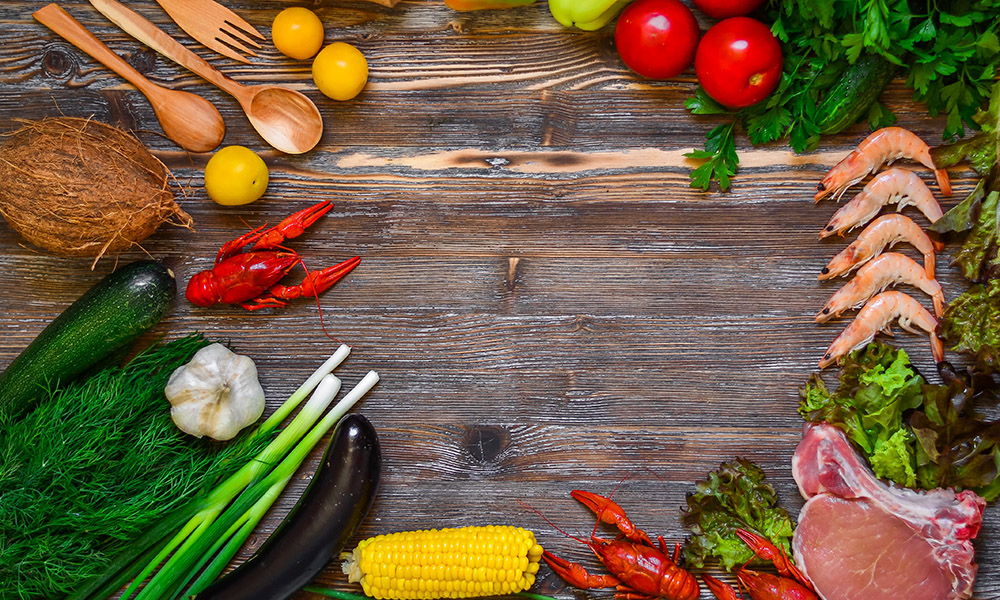
Hi Jase,
I’m after an expert opinion of paleo diets, and all this coconut craziness. Is it really that beneficial for your health? I know these diets have high fat and carb content. What are the Pro’s and Con’s of these kinds of diets?
– Lost in the Diets

Thank you for your question!
The Paleo craze continues to rage on within many different areas, from weight loss sectors, to CrossFit communities, to the staunch supporters of Pete Evans. It really has been one of the longer-lasting nutrition methodologies of recent times, despite some heavy criticism from dietitians abroad and also our governing bodies, the Dietitians Association of Australia and the Sports Dietitians of Australia. Generally speaking, the longer a new nutrition ideal can remain popular within society, the more attention it will draw from people regarding if the approach really is as good as it claims to be.
Can this nutrition approach help with weight loss, enhance performance, provide seemingly miraculous health outcomes in areas where no modern medicine or traditional nutrition approach can? It really seems too good to be true….but not according to the public leader of the paleo diet revolution Pete Evans, who has and continues to advocate these very benefits. So much so, that recipe books and other lifestyle books that are marketed to the health, wellness and fitness community have been developed by Mr Evans himself.
The first thing we need to understand is, there are countless versions of the paleo diet, each with different levels of stringency for adherence to the ten most common messages presented below:
- Eliminate dairy products
- Eliminate wheat and grain products.
- Eliminate legumes.
- Eliminate alcohol.
- Moderate intake of naturally derived stimulants such as caffeine.
- Some versions eliminate fruits, some include but are limited
- Consume only grass fed, organic meats.
- Consume only organic produce.
- Consume only whole foods, and no processed foods (i.e. anything out of a packet essentially, no lollies, soft drinks, refined sugars, or anything artificial such as colours, flavouring agents or sweeteners).
- Consume a diet rich in starchy vegetables, high quality meats and unprocessed fats including butter, coconut milks, creams and oils, nuts, seeds, omega 3 fatty acid rich fishes such as salmon, trout, and other fishes in general.
So let’s break this down, and have a look at what nutrition science currently has to say about the ten areas I have listed above.
- Dairy has been touted to be acidic and pro-inflammatory to our bodies, and therefore linked to many chronic diseases, their development and progression. Yes, I agree that drinking the milk of a cow is not “natural” for us, however over many years we have seen a good proportion of the world’s population evolve to produce and enzyme that breaks down the lactose sugars within cow’s milk.
Dairy provides us with the greatest source of calcium of all foods, and a very high quality protein source also. Any concerns regarding the digestion of the lactose milk sugar itself simply means you should opt for a “lactose free” version of cow’s milk, that had added enzymes to break this down for your body therefore alleviating any concerns regarding digestion. Want more info on the best milks to have, check out our three articles on milks, to determine which is the best option for you.
- Wheat and grains like milk have been touted to again be “pro inflammatory” within our body, and therefore likely to promote the development and progression of chronic diseases and general un-wellness. There are two prominent conditions (gluten intolerance) where sufferers have trouble handling a specific protein called gluten found within wheat, rye and barley products.
Ironically, in a lot of these cases, we find that a group of carbohydrate sugars FODMAPS to be the culprit for the irritable bowel symptoms (IBS) extending to those who suffer headaches, lethargy and general “off” feelings when eating these foods. A specialist dietitian can certainly ascertain the root cause of these problems for you to avoid any unnecessary dietary restrictions.
The other condition is coeliac disease, where the body mounts an immune response against the gluten protein and this essentially replicates a warzone in your small intestines which is terrible news for your nutrient absorption capacity! Other than these two concerns, there is no evidence to support the pro-inflammatory concerns and what we see is that those eliminating grains from their diet are often at risk of B vitamin deficiency, constipation from poor fiber intake and inadequate carbohydrate intake which limits high intensity performance and general energy levels. You are also more likely as shown by research to crave these foods if you eliminate them, a reaction from your brain who prefers to run on carbohydrates which are very rich in these foods.
- Legumes also cop the pro-inflammatory tagline, with paleo-advocates stating that the “anti-nutrients” within these alongside the carbohydrate types (FODMAP implicated food). Therefore if you have the IBS concerns, this food may well be one to avoid. However if this is not the case, please refrain from excluding legumes from your diet, as there is no evidence that supports the pro-inflammatory statements and you will be missing out on a wealth of vitamins, minerals, slow burning carbohydrates, proteins and last but no least fiber which most people find themselves deficient in!
- Alcohol is toxic to the cells of your body, that’s a fact. It is also extremely calorie dense (7 calories per gram of alcohol itself) and that’s before you count that sugary mixer! One 30ml nip of spirits sets you back between 60-80 calories, and even a low carb beer has around 100 calories. Pair the fat-storing hormonal impact of this “nutrient” within your system, and I have to agree with the paleo way here, less really is more when it comes to drinking. Even if research indicates it can lower stress levels in moderation.
- Again I will agree with the Paleo way here, as we live in a “stimulant society”. We abuse things like caffeine and other botanical extracts that all pound our adrenal glands so much there are now supplements on the market to help us unwind from all the stimulants! Some caffeine in moderation is shown to be beneficial for cardiac health (300mg caffeine daily for most people) which is the equivalent of 3-5 cups of coffee depending on how strong the coffee is. But exceed this, and you are risking adverse side effects of dependency such as nausea, irritability, insomnia, headaches and the not well known effects of bone demineralisation increasing your risks of osteoporosis.
- Too much of anything is a bad thing, so consuming your fruit in moderation (2 serves per day for most people) is a good piece of advice. More active people can afford more fruit, to provide quality fuelling carbohydrates, and the good-for-health vitamins, minerals and fiber.
- No real evidence to support the choice of using grass fed meats over other variants in human studies, and as we always work on the evidence base for nutrition science I recommend to save your pennies with this one, grass fed meats are over-stated at this time.
- Organic produce, this is a Just Ask Jase within itself (hint hint someone ask!!). Suffice to say that evidence does not support the claims of additional nutrient content within these foods, nor any claims of adverse health effects from pesticides on human health. We always recommend however, to wash your produce well prior to consumption and at this stage this is another real penny saver!
- Refined “junk foods” or “sometimes” foods are self-explanatory really. If you consume less, you are more likely to really enhance your health, and speed any weighty loss efforts. I cannot support this however in the realms of performance nutrition, where we are thinking of our food as fuel. Refined carbohydrate options can certainly play a role in these scenarios. The other concern I have is the element of sustainability with this recommendation of eliminating these foods entirely. Please think moderation with these foods, as research shows us that sustainability is found without the elimination of these foods. Artificial additives, the paleo way has that very much correct. Avoid these, as we are yet to fully understand the long term effects of these foods on our health, however animal studies and their results should be something to have you concerned.
- The biggest problem with this recommendation, is the saturated fat inclusion. Whole foods are awesome, but we need to recognise the cholesterol response associated with these type of fats which is not up for debate. Our previous article regarding coconut products details that well, and the same principle applies to meat fats, lards, butters, creams and any full fat dairy options you choose to include. Avoid this significant pitfall of the paleo way!!
Another point of note, is that carbs aren’t bad. The paleo diets can often be quite low in this nutrient which despite all the positive messages of consuming whole foods, less processed foods, and avoiding artificial additives, it really is not optimal for your health.
Remember, just because everyone eats, everyone should not therefore think they have the right to project their “thoughts and beliefs” to others on the topic of nutrition. Trust the only nutrition professionals who are bound by using evidence based practice, and that is an Accredited Practicing Dietitian or an Accredited Sports Dietitian. Both of which we have at Enliven Nutrition!
— Jase
Got a nutrition or training question? Or just want to know how to become better than yesterday?










